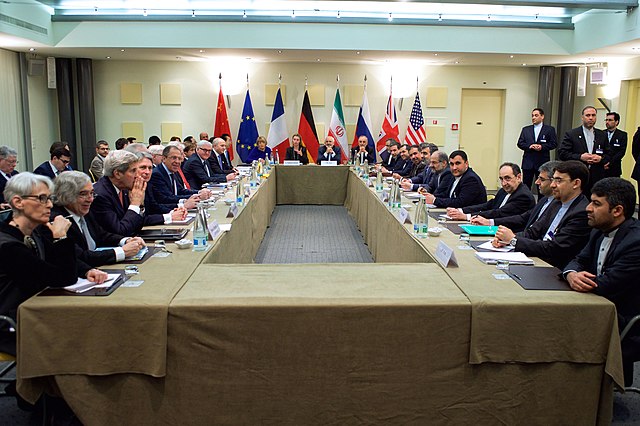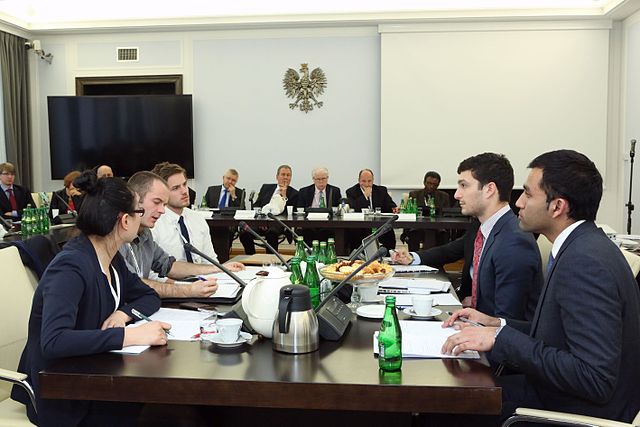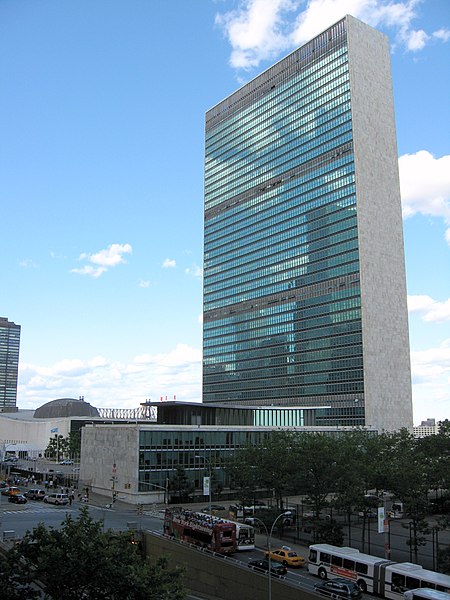Negotiation is a dialogue between two or more parties to resolve points of difference, gain an advantage for an individual or collective, or craft outcomes to satisfy various interests. The parties aspire to agree on matters of mutual interest. The agreement can be beneficial for all or some of the parties involved. The negotiators should establish their own needs and wants while also seeking to understand the wants and needs of others involved to increase their chances of closing deals, avoiding conflicts, forming relationships with other parties, or maximizing mutual gains. Distributive negotiations, or compromises, are conducted by putting forward a position and making concessions to achieve an agreement. The degree to which the negotiating parties trust each other to implement the negotiated solution is a major factor in determining the success of a negotiation.

The ministers of foreign affairs of the United States, the United Kingdom, Russia, Germany, France, China, the European Union and Iran negotiating in Lausanne for a Comprehensive agreement on the Iranian nuclear programme (30 March 2015)
Signing the Treaty of Trianon on 4 June 1920. Albert Apponyi standing in the middle.
Students from the University of Tromsø and the University of Toronto during the 5th International Negotiation Tournament – Warsaw Negotiation Round in the Polish Senate (2014)
A diplomat is a person appointed by a state, intergovernmental, or nongovernmental institution to conduct diplomacy with one or more other states or international organizations.
French diplomat Charles Maurice de Talleyrand-Périgord is widely considered one of the most skilled diplomats of all time.
The headquarters of the United Nations in New York City, the world's largest international diplomatic organization.





